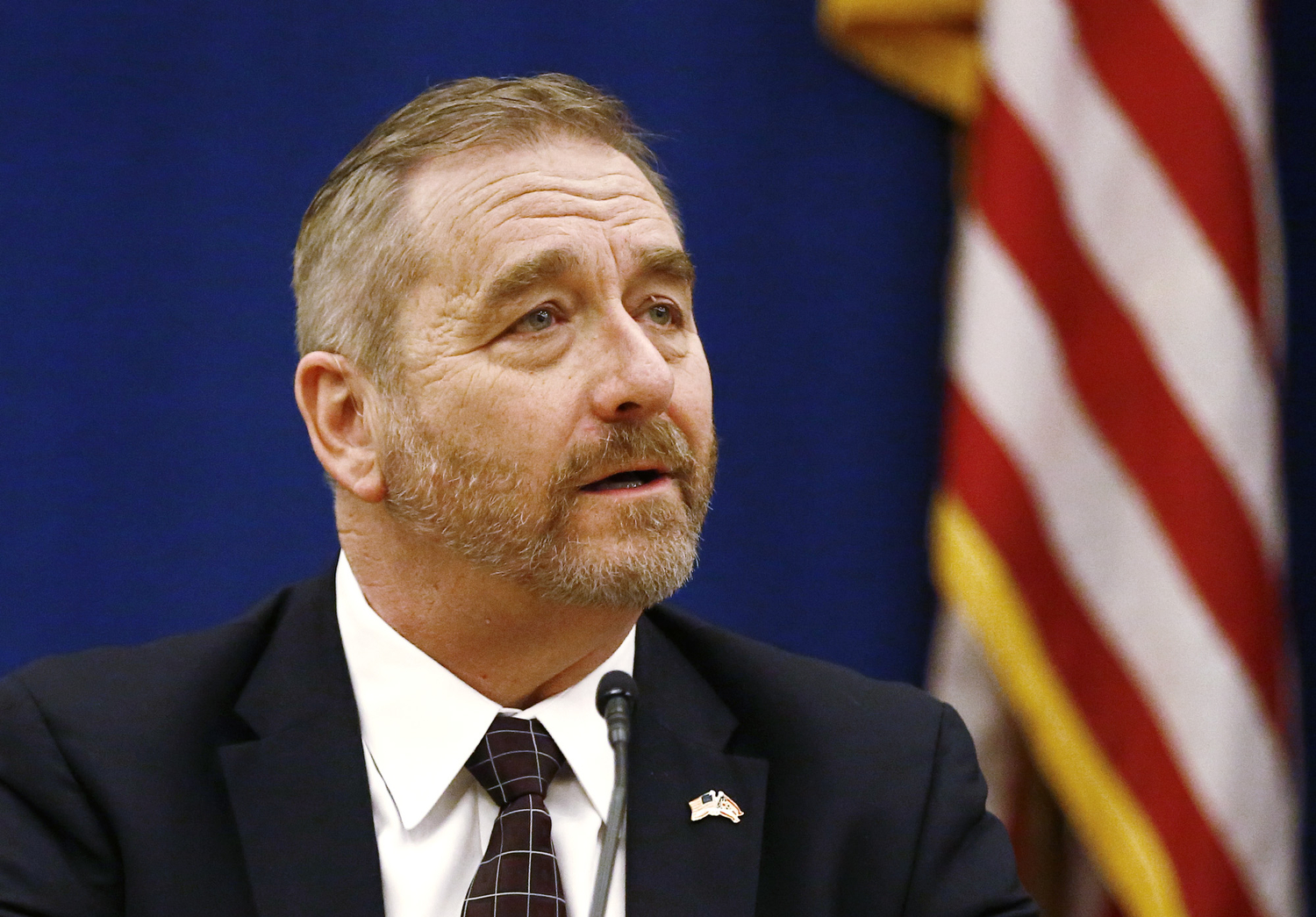Side Effects
Court filings hint at more state action against PBMs
Court filings indicate that much more legal action is coming for the middlemen who administer drug benefits for state agencies.
Ohio Attorney General Dave Yost promised as much in January as his agency investigated pharmacy benefit managers, which are businesses such as Express Scripts and CVS Caremark that contract with state agencies or their insurers to handle drug benefits.
In February, Yost announced that he was taking action against another big PBM, OptumRx. And in March, the attorney general filed suit against the company on behalf of the Bureau of Workers' Compensation, seeking $30 million in compensation and damages. The suit contends that OptumRx didn't live up to the terms of its contract and committed fraud in the process.
Recent court filings indicate that as many as seven more such actions could be on the way.
A series of exhibits filed March 15 in Franklin County Common Pleas Court shows that as the attorney general in July, Mike DeWine, now the governor, hired an outside law firm to investigate and possibly sue the PBMs doing business with all the state's pension funds and the Department of Administrative Services. The outside attorney also was directed to examine $2.5 billion that PBMs process each year on behalf of the Ohio Department of Medicaid through contracts with managed-care organizations.
The contracts say the outside attorney, W. Lawrence Deas of Jackson, Mississippi, must seek approval from the Ohio attorney general before proceeding with litigation. Yost said Friday that all of the investigations continue — and he took a shot at former Gov. John Kasich in the process.
“This office has not disapproved any litigation," Yost said in an email. "Our due-diligence work is ongoing. This work was delayed because of a lack of information available through the prior gubernatorial administration. The current (DeWine) administration is cooperating fully, and we anticipate additional legal actions.”
In addition to the Medicaid and administrative services departments, Deas is investigating PBM deals with the multibillion-dollar Ohio Public Employees Retirement System, School Teachers Retirement System, School Employees Retirement System, Ohio Police and Fire Pension Fund and Ohio Highway Patrol Retirement System.
Spokesmen for four of the retirement systems who were reached for comment said they were either unaware of any potential litigation or unable to comment.
SERS spokesman Tim Barbour did note, however, that the agency was able to negotiate a nearly 20 percent discount on drug pricing with its PBM, Express Scripts, in light of the PBM issues with Medicaid and the Bureau of Workers' Compensation.
Drug Look Up | Use our database to see if you're paying too much for your prescription drugs
Express Scripts, which is the PBM for at least four of the retirement funds, didn't respond to a request for comment.
The state also retained Deas to investigate and handle the case against OptumRx over its work for the workers' compensation bureau. That lawsuit contends that Optum didn't live up to the discount guarantees in its contract and that Optum employees even told workers' comp officials that the company had jacked up its prices to subsidize discounts to other customers.
OptumRx spokesman Drew Krejci denied the allegations and said his company is honored to serve Ohio workers.
OptumRx is owned by UnitedHealthcare, one of the five managed-care organizations that contract with Ohio Medicaid. CVS Caremark is the PBM for the four others. A legal dispute between Medicaid and the two PBMs brought the specifics about the attorney general's possible future actions against them to light.
As part of its Side Effects investigation into pharmacy benefit managers, The Dispatch obtained reimbursement data last year from dozens of pharmacies that indicated the PBMs were charging taxpayers 12 percent more for drugs than they were reimbursing the pharmacies that dispensed them. A subsequent analysis by Ohio Medicaid using all reimbursement data put the margin at 8.8 percent. That's $224 million a year, and at least triple the going rate, the analysis found.
CVS Caremark and OptumRx are now in a court battle to keep parts of the report secret — although The Dispatch has obtained portions showing that CVS's PBM would have to reimburse some big competitors 45 percent more if it were to apply the same reimbursement rate as it does its own retail pharmacies.
The PBMs have deposed officials with the consulting firm that performed the Medicaid analysis, HealthPlan Data Solutions, in part to ask whether its officials had spoken to The Dispatch. They also served HealthPlan Data Solutions with wide-ranging subpoenas demanding extensive information.
Do you have a news tip?
If you are interested in sending The Columbus Dispatch investigative team working on the Side Effects series an anonymous tip or documentation, you can do so here:
Submit a news tipMedicaid, which is trying to quash that inquiry, accused CVS of "trying to use its subpoena to learn if HDS has been engaged by any other state agency to conduct any type of analysis."
The March 15 court filings by the Ohio attorney general confirm that "HDS has been involved in our effort as a consulting expert," an email written by Deas to Assistant Attorney General Julie Brigner said.
CVS declined to comment for this story.
Other states also are questioning their agreements with their PBMs. Yost said he does not know at this point whether that could lead to a multi-state suit.
He said during a brief interview that many of the issues are local in nature, and state court might be the proper venue for them. But he left the door open.
"I can't comment right now on whether any other states will be involved," Yost said.
